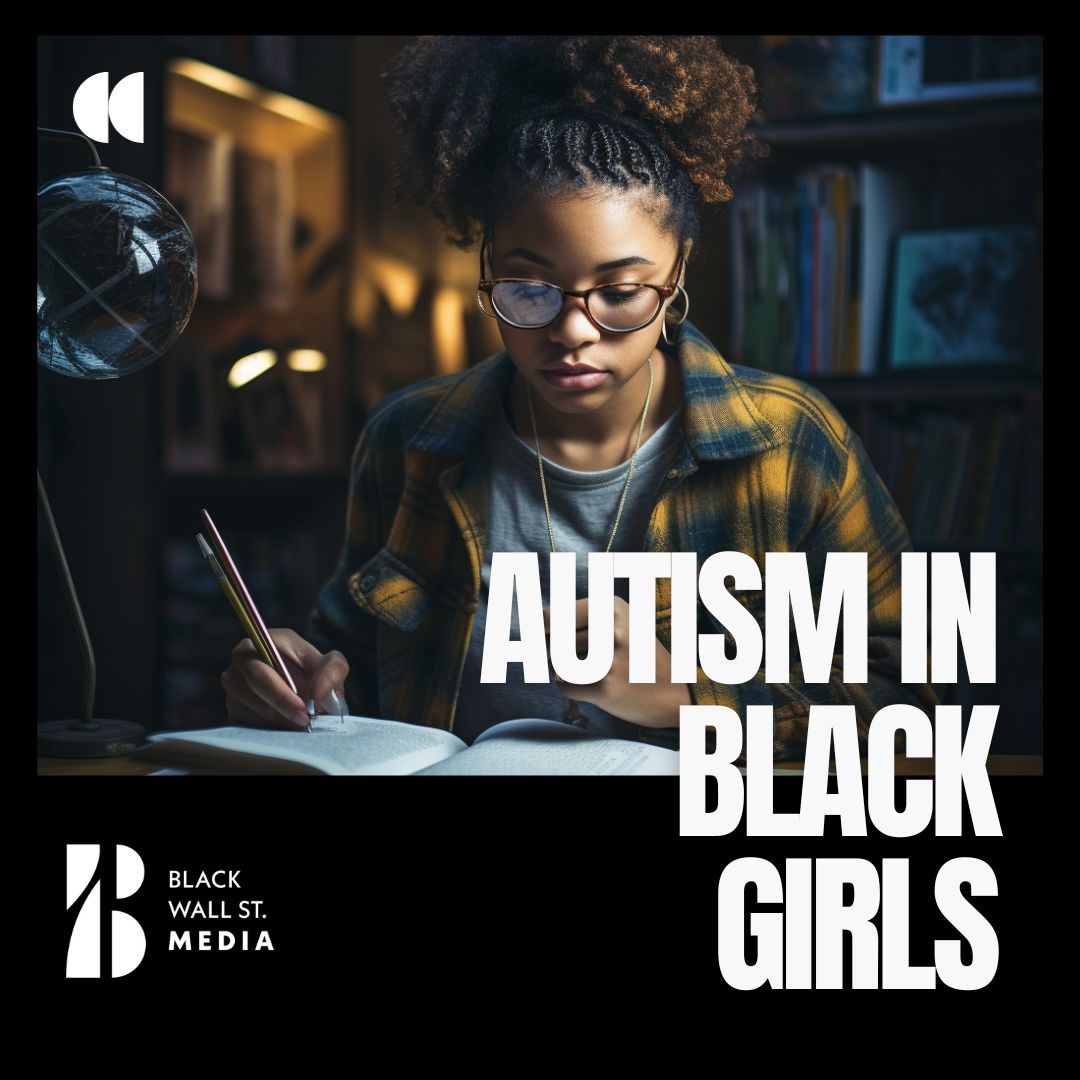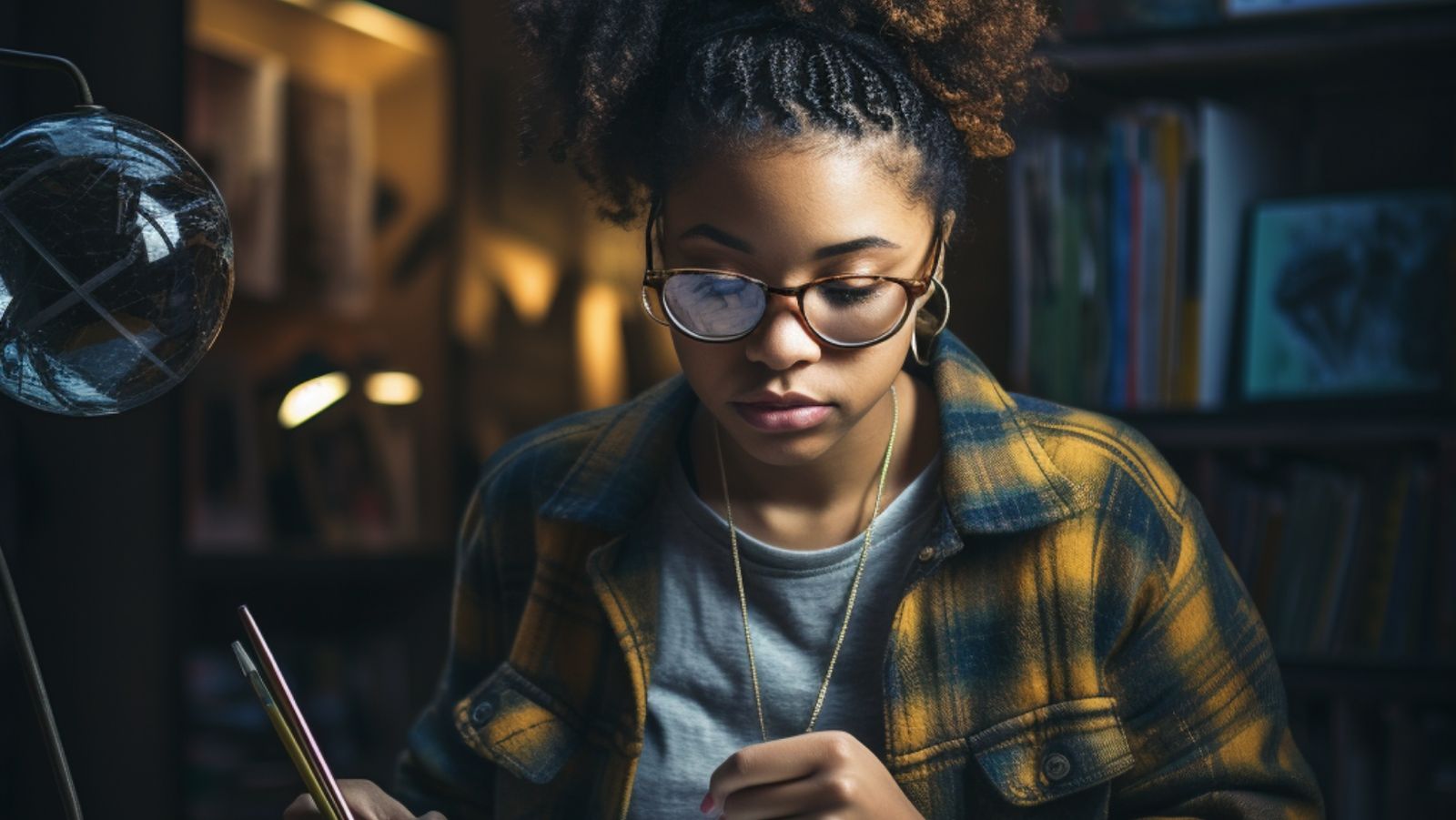HEALTH
Autism in Black girls
“Unveiling the struggles faced by Black girls with neurodivergence, often overlooked and invalidated. Let's break the silence and challenge the stereotypes.”
Warda FarahContributor

I always thought I was different growing up, but I thought it was because there was something wrong with me.
There was always this code, this system, this way of being that everybody else had but eluded me.
During my schooling I excelled at analytical tasks that required me to think about abstract ideas and concepts but struggled with easier tasks that required following specific sets of instructions.
My teachers would always say I had potential but did not apply myself enough, I did not listen and I wasted time daydreaming.
I internalized these opinions of myself and began to hate how lazy, disorganised and clumsy I was. 25 years later and at 31 I find out I am autistic and have ADHD, I’m also probably dyspraxic.
So the question is how did I get missed? What was it about me that meant that every professional I ever met told me it was me that was the problem and I had to change in order to achieve?
My experiences were symptomatic of my own personal failures and not the unique way I experience the world we all inhabit.
The truth is Black girls’ needs are not considered, in general. We are the last group whose needs are considered across a plethora of areas, maternal health, education, employment and we are the forgotten majority when it comes to matters of neurodivergence.
Any difficulties that surface are seen as a problem with the person, the upbringing, the culture.
Black girls are adultfied and thus if they struggle in any way this is something that they have chosen to do and they must fix it themselves.
Yet we continue to be the unpaid laborers who continuously push the above social agendas, we are changemakers for everyone else but ourselves.
That is why Black autistic girls/women are an afterthought in the conversation, we are only required when a “diverse” opinion is needed, when the panel is too white, the researchers are too white and the topics for discussion do nothing to enhance our Black lives.
Growing up that’s how I felt, I was different and I needed to be the one to fix it, so I tried my best to learn.
I would make friends with the most popular girls and always have a best friend who was more socially competent than me to rely on.
This strategy worked so well that for a time everything was great, I always had a group of faithful friends who would look after me, remind me about homework assignments, allow me to copy their work when I was suffering from cognitive fatigue, and plan all our social events so all I had to do was turn up.
What I gave in return was a rare commodity: a loyal friend who could keep secrets, always tell you the truth, and stand up for anybody going through injustice.
I was also a very good listener and often would counsel my friends and elders on matters that I could intellectually understand but not emotionally relate to. This is not because I lack emotion: on the contrary I feel things deeply, sometimes too deeply.
You may now be wondering how it all came crashing down, despite my multitude of strategies. Well, there is only so long that you can play a character before you burn out, before you look at yourself in the mirror, ask yourself who you are and do not have an answer.
I could be whoever you want me to be, whoever I have to be to survive, to get by, to fly under the net of judgment. At 30 I no longer wanted to play the caricature of normal, whatever that is? I began compiling a document of my experiences, began analyzing my behaviors and then I was somewhat able to accept that I do perceive the world differently and that’s not my fault.
I am how I am and through learning more about myself I become more comfortable with it. This doesn’t mean that I do not struggle at time. I have a lot of lows but I also have a lot of highs, I have a lot of regrets about not being identified earlier, maybe my life would’ve been different and maybe it would still be the same. Either way I am autistic and I am no longer ashamed to admit it.
Now the caveat to this story is despite being a Speech and Language Therapist who has worked with many autistic children over the years and having my own unique lived experience, medical professionals I have come across have told me that I can not be autistic because I have multiple degrees, run a business, have a big social circle.
I am successful by the arbitrary measures that our society imposes on us but to achieve it all I have worn many masks, so I can master my environment.
My ability to perform as a “functional” human being has been a survival mechanism and with cost to my emotional mental health and wellbeing, my quality of life.
None of this helped by the gaslighting of White Professionals who tell me “it’s all in your head”.
So to them I say.
Maybe Autism in Black girls manifests how it manifests in white girls but you do not see us, actually maybe you can see us, you just choose to discount our experience, ignore our needs, invalidate our pain, erase all existence of our trauma because you do not see Black girls as human.
Warda Farah
Warda is a Speech and Language Therapist and a trustee of Autistic Girls Network
Black Wall St. MediaContributor







